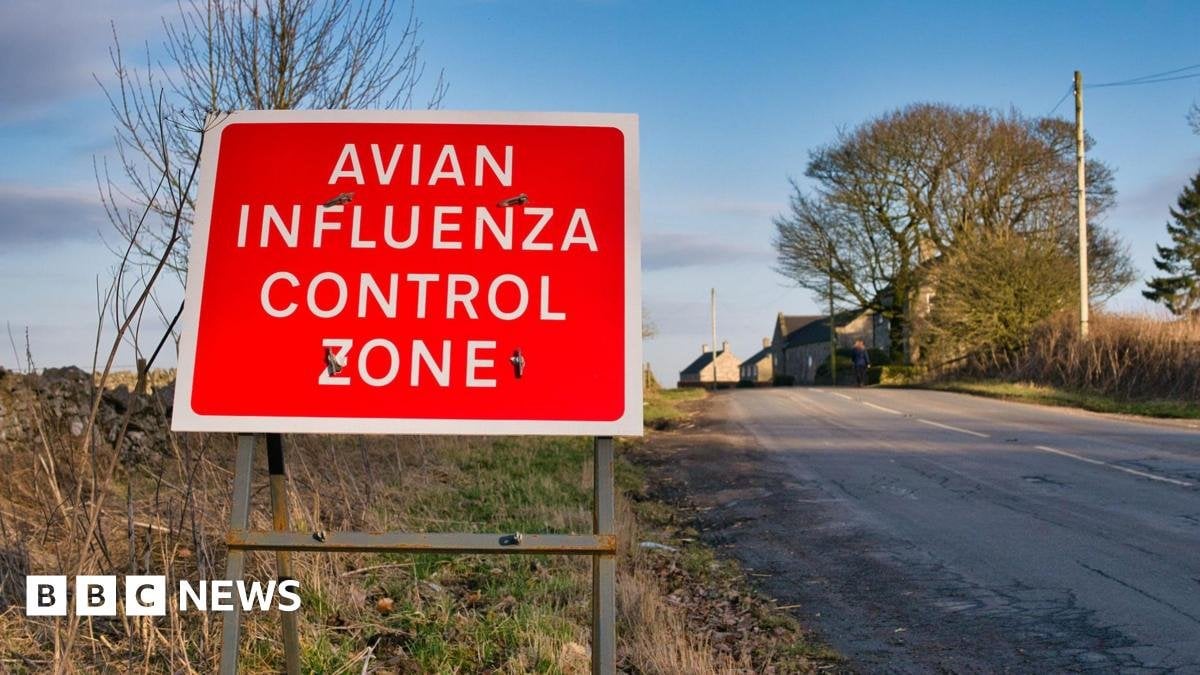
https://www.bbc.co.uk/news/articles/cn0ypdkgd1no
Restrictions must be adhered to by all poultry and captive bird keepers within the 3km zone around the affected premises
Finn Purdy
BBC News NI
Published
7 February 2025
A small number of captive birds have had a preliminary positive test for bird flu at a nature reserve outside Magherafelt, according to the Department of Agriculture, Environment and Rural Affairs (Daera).
The department has put in place a 3km temporary control zone, external around the reserve, which among other measures limits the movement of poultry, captive birds and poultry products both into and out of the zone.
Agriculture Minister Andrew Muir described the preliminary positive results as "very disheartening".
The disease poses a huge risk to the local poultry sector, which is worth around £0.5bn a year to the Northern Ireland economy.
"No captive bird site or poultry premises is immune from a potential incursion of this terrible disease," Muir added.
"It is of paramount importance that all bird keepers take appropriate action now to review and enhance their biosecurity measures to protect their birds from this highly infectious disease."
'Devastating impact'
The premises in County Londonderry has been closed to the public and a number of immediate restrictions have been put in place around the site, including the humane culling of the remaining captive birds.
The Chief Veterinary Officer for Northern Ireland Brian Dooher has urged "all flock keepers, in line with the requirements of the Avian Influenza Prevention Zone in place across Northern Ireland, to take action to review and, where necessary, improve biosecurity in order to prevent further incursion of the disease".
He added that if the disease were to enter into the commercial flock "it would have a significant and devastating impact on our poultry industry, international trade, and the wider economy".
A biosecurity checklist is available on the Daera website, external.
In January, cases of bird flu were confirmed in a wild goose found near Dungannon, a buzzard near Moira, and a whooper swan in Portballintrae.
There has not been an outbreak in a commercial setting in Northern Ireland since December 2021.
A goose, found near Dungannon last month, was the first wild bird to test positive in Northern Ireland since September 2023
Bird flu restrictions were eased in April 2023, following an outbreak which began in October 2021. It was described as the largest ever in these islands.
However, strict biosecurity protocols have remained in place.
In December 2024, the highly contagious virus was detected in a dead wild buzzard found in County Galway.
It was the first confirmed discovery on the island of Ireland since September 2023.
On Friday, the Irish agriculture minister emphasised the importance of biosecurity for poultry.
"I want to express my support for the poultry farmers and Minister Muir's officials in Northern Ireland who are dealing with this case of avian influenza and working hard to protect their poultry industry," Martin Heydon said in a statement.
"My officials are in regular and close communication with their counterparts in Northern Ireland, given the importance of the poultry industry on both sides of the border,” the minister added.
"My officials are keeping this situation under ongoing review."
by spectacle-ar_failure
6 comments
[Don’t beLIEve The Matrix49](https://www.youtube.com/watch?v=E6T4tRBwkrA)
Control zone? Bio security checklist? This sounds a lot like the British government are erecting hard borders on the island of Ireland.
annoys me this will probably result in wild birds being culled to protect megafarm poultry industry polluting Lough Neagh.
Magherafelt? Are they jail birds?
Why does a nature reserve have captive birds in the first place?
I’d always assumed nature reserves had the opposite of captive birds.
What are the RSPCB spending my money on? Budgies?
Hopefully it doesn’t spread to Belfast 🙏
Comments are closed.